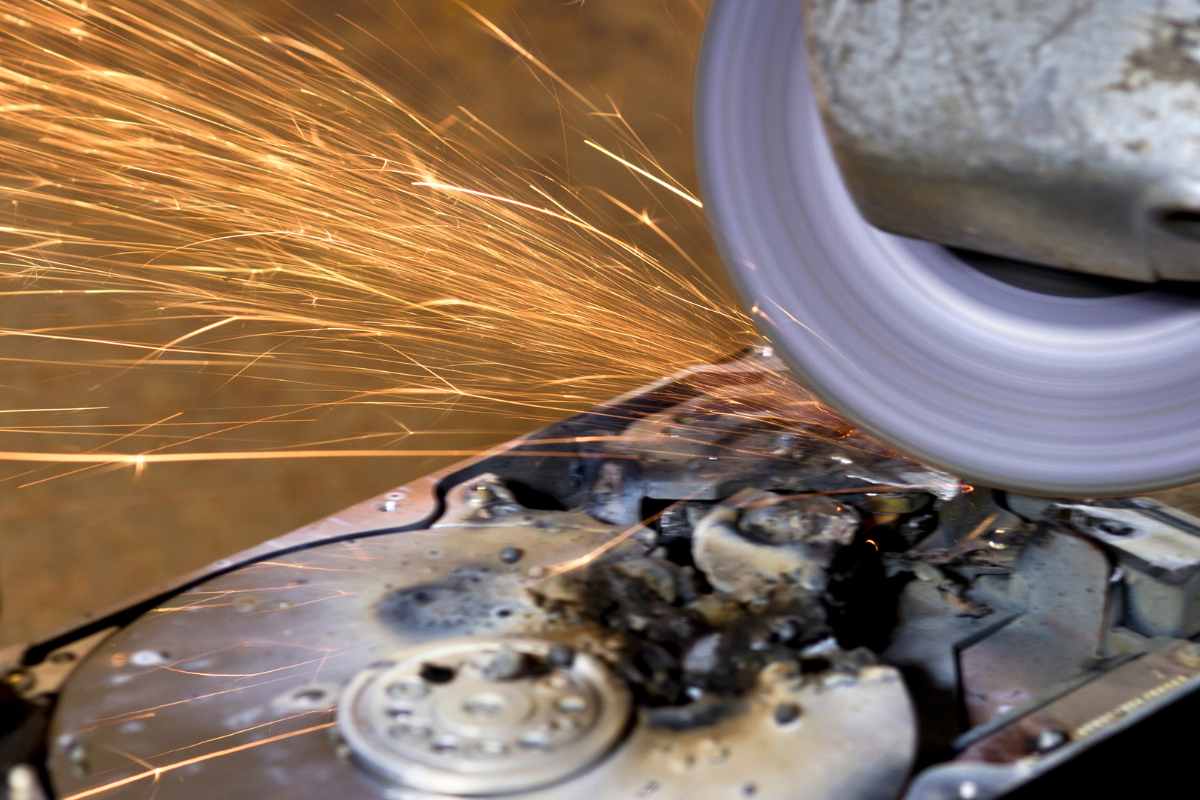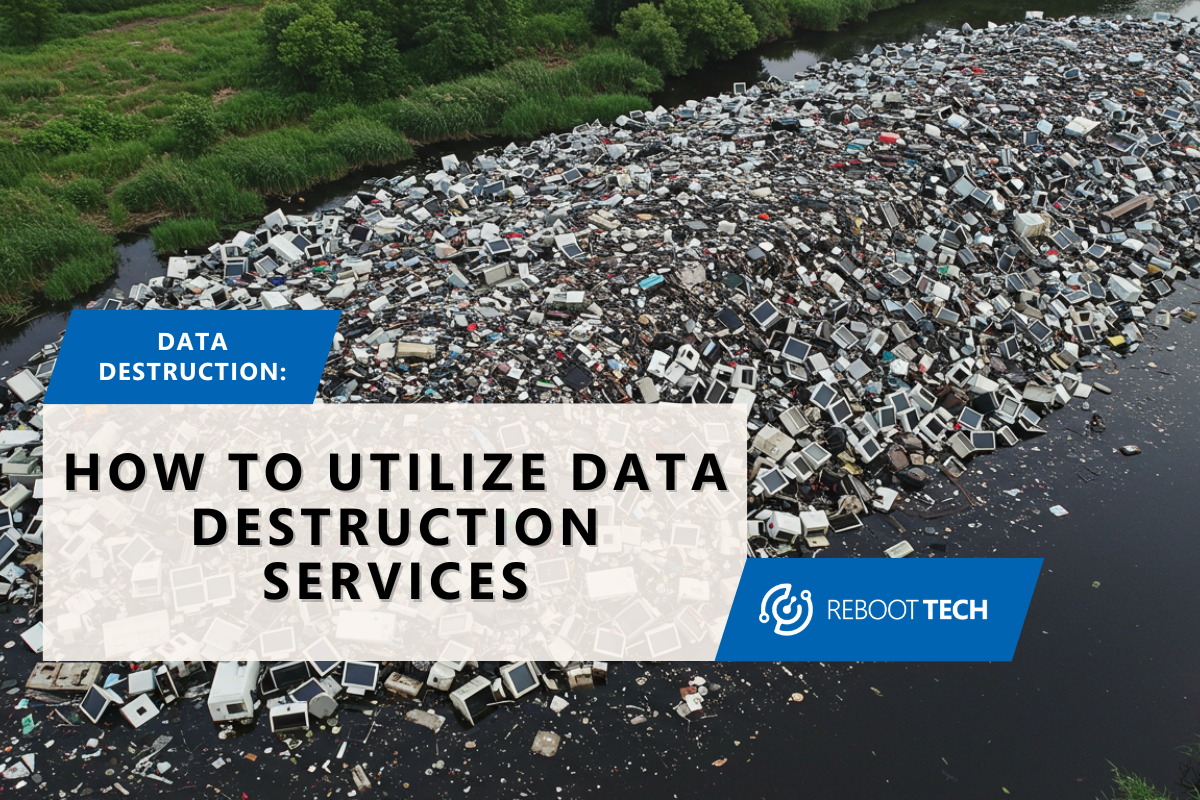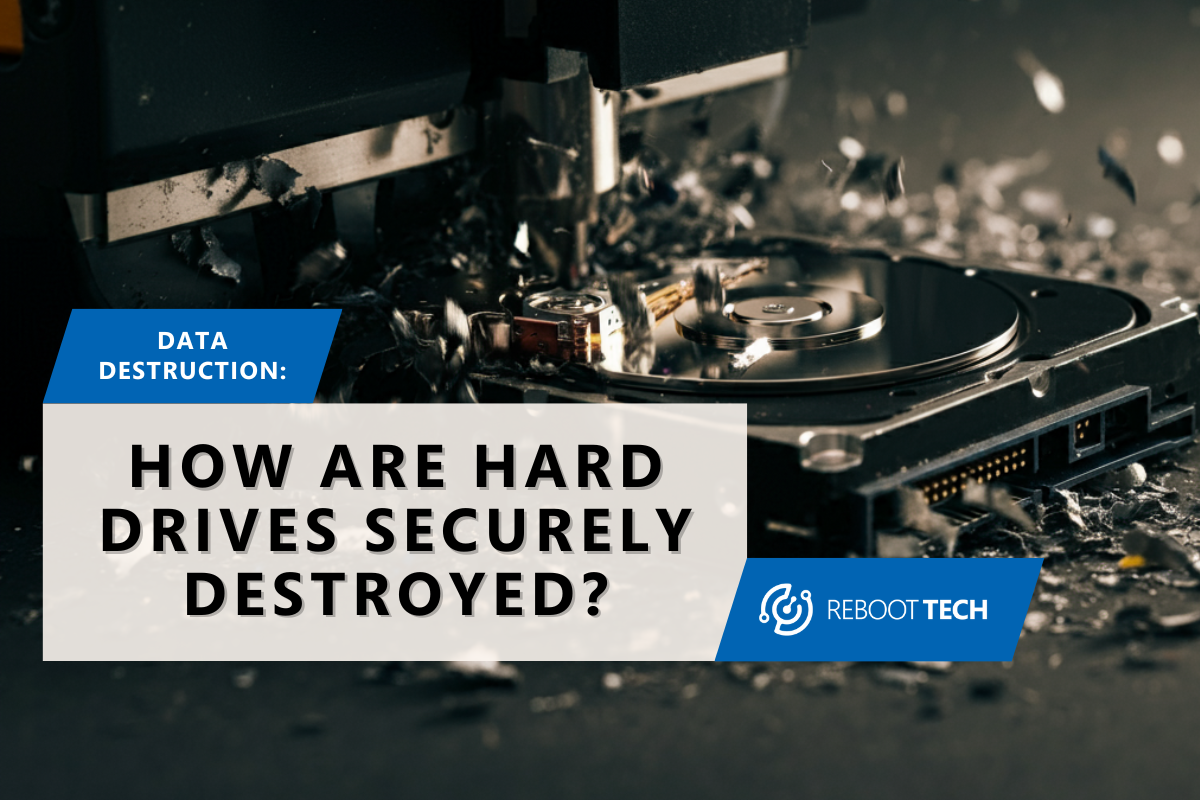
What is the Process of Securely Destroying Hard Drives?
In today’s digital world, almost everything we do—whether personal or business-related—leaves behind a digital footprint stored on hard drives. From family photos and emails to confidential business documents and financial records, hard drives contain a wealth of sensitive information.
But what happens when it’s time to upgrade or dispose of those old computers? Many people make the mistake of simply deleting files or recycling their devices without properly securing the data, not realizing that sensitive information can still be recovered.
This is where secure hard drive destruction comes into play. Properly destroying a hard drive is the only surefire way to protect your personal or business data from falling into the wrong hands. In this ar, we’ll explore why hard drives need to be securely destroyed when recycling e-waste, why it’s important to rely on professionals for this process, and how certifications like the NIST-800-88 Certificate of Destruction guarantee that your data is permanently erased.
Why Do Hard Drives Need to Be Destroyed When Recycling E-Waste?
When you recycle an old computer, laptop, or external hard drive, it’s not enough to simply delete your files or format the drive. Deleting a file doesn’t actually remove it from the hard drive—it just makes the space available for new data. With the right tools, cybercriminals can easily recover deleted files, which is why hard drives that store sensitive information must be securely destroyed.
E-waste is one of the fastest-growing types of waste globally, and within that massive pile of discarded electronics, many hard drives still contain personal and sensitive information. Whether you’re a business handling customer data, or an individual looking to get rid of old devices, hard drives can store data that, if compromised, can lead to identity theft, data breaches, or other forms of cybercrime. Sensitive data left on hard drives can include:
- Personal Information: Names, addresses, social security numbers, and more.
- Financial Data: Bank details, credit card numbers, tax records.
- Business Data: Confidential business plans, customer databases, and intellectual property.
Failing to properly destroy these hard drives before recycling can lead to disastrous consequences, as hackers and identity thieves actively look for opportunities to recover information from improperly disposed of e-waste. Therefore, it’s not only responsible but necessary to destroy the hard drives before recycling.
Why You Should Have Professionals Destroy Hard Drives
It’s tempting to try and destroy an old hard drive yourself—after all, how hard can it be? Some people believe smashing the hard drive with a hammer or drilling holes through it is enough to render it useless. However, these methods are often ineffective, as the data may still be recoverable by those with the right tools. In fact, unless you have the technical expertise and equipment to properly destroy the hard drive, DIY methods can leave you vulnerable.
Here’s why you should always turn to professionals for secure hard drive destruction:
1. Guaranteed Data Destruction: Professional data destruction services use methods like shredding, degaussing, or data wiping to ensure that every bit of data is completely and irreversibly destroyed. These methods go beyond physical damage, rendering the hard drive completely unreadable.
2. Compliance with Regulations: Businesses are required to adhere to strict data protection laws, such as HIPAA (Health Insurance Portability and Accountability Act) or GDPR (General Data Protection Regulation), which mandate that sensitive data be securely destroyed. Professional hard drive destruction services ensure you comply with these regulations, avoiding heavy fines and legal trouble.
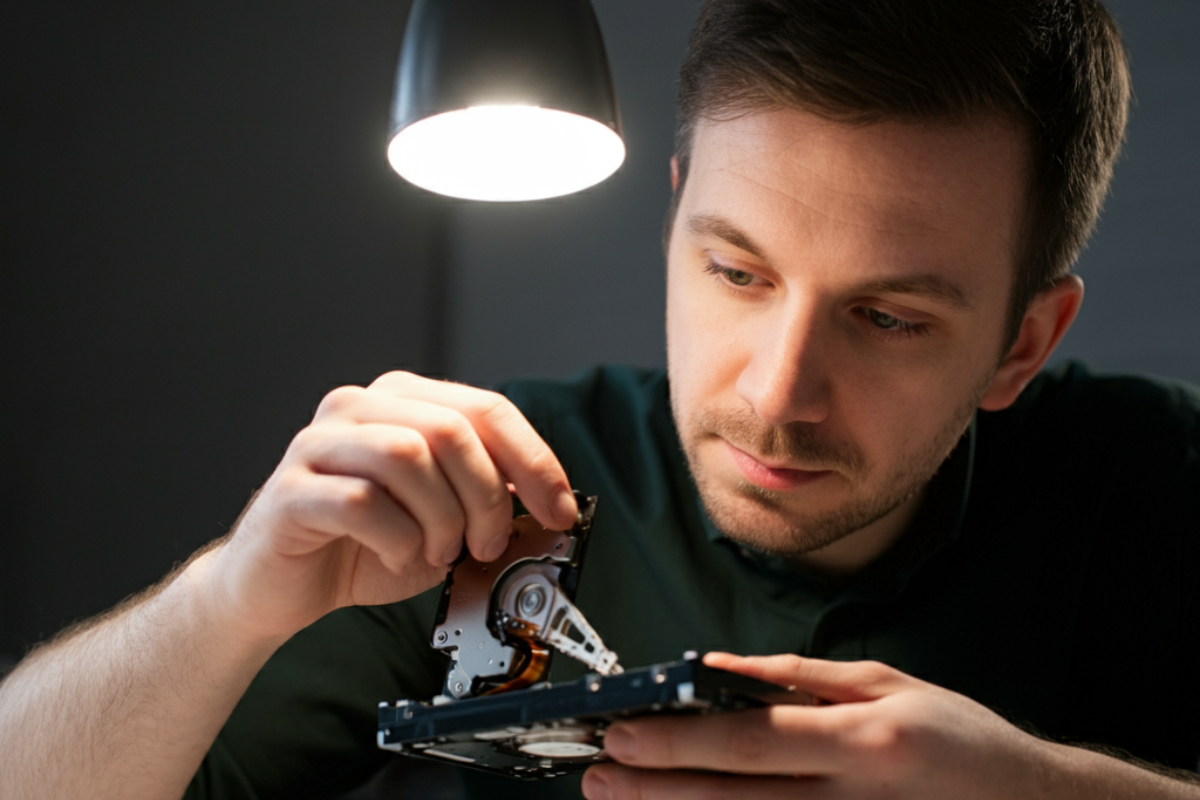
3. Safe and Environmentally Friendly: Professional services don’t just destroy hard drives—they do so in an eco-friendly manner. They ensure that the components of your hard drive are properly recycled, minimizing the environmental impact of e-waste.
4. Certifications: When you work with professionals, you’ll receive a Certificate of Destruction, which proves that your hard drives have been destroyed according to industry standards, offering peace of mind that your data is gone for good.
What is the NIST-800-88 Certificate of Destruction?
When securely destroying hard drives, compliance and documentation are essential, especially for businesses that handle sensitive data. One of the most trusted standards in hard drive destruction is the NIST-800-88 guideline, published by the National Institute of Standards and Technology (NIST).
The NIST-800-88 standard outlines the best practices for data sanitization, meaning it details the methods that should be used to ensure all sensitive information is unrecoverable. This standard is widely recognized in industries like healthcare, finance, and government, where data security is critical.
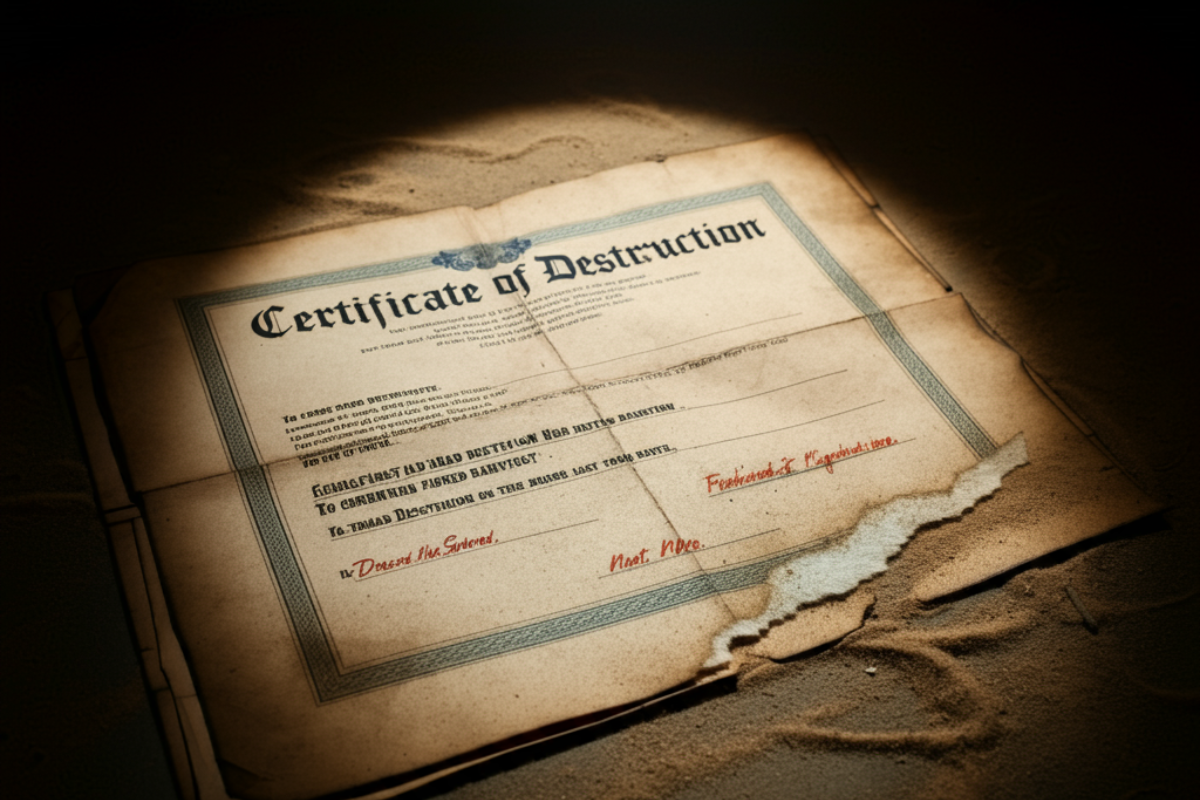
- Confirms the data on the hard drive has been destroyed beyond recovery.
- States that the destruction process complied with the NIST-800-88 standard.
- Provides a record that your business has taken the necessary steps to protect sensitive information.
For businesses, this certificate is a crucial document, proving that you’ve complied with all legal and regulatory requirements concerning data destruction. This can protect you in case of audits, legal claims, or breaches in the future.
Working with Reboot Tech
Now that you understand the importance of secure hard drive destruction, the next step is finding a trusted company to handle the process. Reboot Tech is an industry leader in e-waste recycling and data destruction, offering services that meet the highest standards of security and environmental responsibility. Hard drive recycling will be taken care of with complete ease.
Here’s what sets Reboot Tech apart:
- Certified Data Destruction: Reboot Tech follows NIST-800-88 guidelines, ensuring your data is destroyed in compliance with the strictest standards. You’ll receive a Certificate of Destruction, giving you peace of mind that your data is gone for good.
- Secure Hard Drive Shredding: Reboot Tech uses industrial-grade shredders to physically destroy hard drives, ensuring that no data can be recovered. These shredders break the hard drives into tiny, unreadable fragments, which are then sent to certified recycling facilities.
- Data Wiping: In cases where the hard drive is still functional, Reboot Tech offers data wiping services, using advanced software to permanently erase all data. This process is often used when the hard drive needs to be reused or resold.
- Environmentally Friendly Disposal: At Reboot Tech, hard drives and other e-waste are processed in an eco-friendly manner. Once the data has been destroyed, the hard drive components are recycled to reduce waste and protect the environment.
Reboot Tech also offers convenient services such as free drop-offs for individuals and bulk pick-up services for businesses. Whether you’re recycling a single laptop or hundreds of hard drives, Reboot Tech makes the process simple, secure, and environmentally responsible.
Securing Your Information
Secure hard drive destruction is a critical step in protecting your data while responsibly recycling e-waste. Whether you’re an individual or a business, simply deleting files or storing old hard drives isn’t enough—sensitive information must be thoroughly erased or destroyed to prevent it from falling into the wrong hands.
Working with professional services like Reboot Tech ensures that your hard drives are destroyed in compliance with industry standards like NIST-800-88, and the process is carried out in an environmentally responsible way. Don’t let your sensitive data become a liability—protect yourself and the environment by securely destroying your hard drives today.
